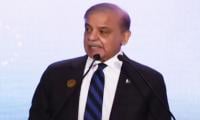The number of young people suffering from heart attacks in Karachi has been rising at an alarming rate with health experts attributing this to overconsumption of unhealthy foods such as biryani, nihari, haleem, halwa-puri, and junk food, all of which are high in trans fat. Combined with physical inactivity, these dietary habits contribute to an epidemic of early heart attacks and strokes among the city's youth.
This was said at a session titled ‘Food for Health or Disease?’ that ended late night on the final day of the Health-Asia Conference at the Expo Centre Karachi on Saturday.
Experts from the National Institute of Cardiovascular Diseases (NICVD), Pakistan Islamic Medical Association (PIMA) and Pakistan Nutrition and Dietetic Society (PNDS) urged the youths to reduce their intake of unhealthy foods and adopt healthier lifestyle.
"Unhealthy food consumption in Karachi is on the rise, and unfortunately, it’s very cheap and accessible," said Prof Tahir Sagheer of NICVD. "Commercially produced biryani, nihari, haleem, and halwa-puri are all prepared with trans-fat-rich ghee, making people prone to life-threatening diseases and premature death."
He emphasised that the number of young people being admitted to the NICVD with heart attacks and strokes had been increasing largely due to poor dietary choices and lack of physical activity. "Karachi lacks the infrastructure for physical activities like walking, running and sports, which further exacerbates the problem," Sagheer added.
Citing the American Heart Association (AHA), he pointed out that in addition to unhealthy eating and inactivity, sleep deprivation—often caused by excessive time spent on social media—has become another significant risk factor for heart attacks. He urged the young people to adopt healthier habits, including eating more fruits and vegetables and engaging in regular exercise to maintain cardiovascular health.
Prof Khawar Kazmi, head of the NICVD's Preventive Cardiology Department, said that the rise in cardiovascular disease (CVD) and related deaths in recent years was unprecedented, mainly due to increasing rates of obesity among Karachi’s population.
“In some parts of Karachi, obesity levels have reached as high as 70 to 80 per cent. People are consuming large amounts of junk food, and they’re misled by advertisements promoting unhealthy oils like banaspati ghee,” he lamented. According to Prof Kazmi, physical activity levels in Karachi had dropped drastically. "The city offers little space for even basic activities like walking," he said, stressing the need for a shift towards healthier diets, including the consumption of raw vegetables, fruits, multigrain flour, unprocessed foods and minimal salt.
He also discouraged the use of white sugar and advocated for daily physical exercise to counteract the unhealthy environment.
Health safety expert Dr Zakiuddin Ahmed added to the discussion by emphasising the importance of making better dietary choices. He urged people to “protect their lives from sugar and feed their gut fiber” to prevent heart disease and stroke. He also warned about the power of the global food industry, describing it as a major contributor to the rise in non-communicable diseases (NCDs) worldwide.
He stressed the importance of focusing on disease prevention through healthy lifestyles, quality food and regular physical activity, noting that Pakistan could not afford to treat the overwhelming number of patients with non-communicable diseases. Dr Ahmed urged both the media and healthcare professionals to prioritise prevention efforts.
Haroon Qasim, managing director of Pharmevo, called for policy reforms to help reduce Pakistan’s disease burden. “Instead of taxing people, especially the salaried class, the government should impose taxes on sugar-sweetened beverages and unhealthy food products, which are contributing to premature deaths and disabilities,” he suggested.
Haroon Qasim also highlighted the economic challenges faced by many Pakistanis in accessing healthy food, urging experts to develop affordable solutions to improve nutrition for the country’s poorer population.
The conference concluded with further calls from PIMA Central President Prof Atif Hafeez Siddiqui and other health experts, including Dr Jahan Ara from Dow University’s Ojha Hospital, for prioritising preventive measures in combating the growing epidemic of heart disease and stroke among Karachi’s youth.
An aerial view of Karachi city. — AFP/FileCultural BlossomsThe ArtCiti gallery is hosting an art exhibition...
Karachi Mayor Barrister Murtaza Wahab exchanges views with the Ambassador of the Czech Republic, Ladislav Stienhubel,...
A postman is collecting letters from a post box at GPO Cantt on October 8, 2024. — APPA consumer court has ordered...
View of the KE headquarters in Karachi. — Facebook@K-Electric/FileK-Electric has announced the launch of 4th...
Karachi Metropolitan Corporation building. — X@emnpk/FileSindh Chief Secretary Syed Asif Hyder Shah has taken...
Students during an exam in this undated image. — PPI/FileIBA Sukkur Vice Chancellor Dr. Asif Sheikh has sought help...







